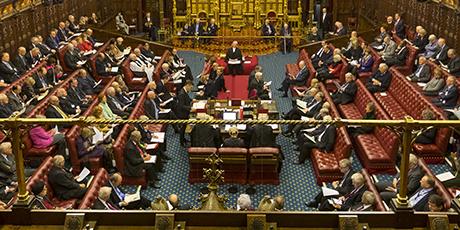
Blog by Ayesha Carmouche
Last week (8 March) cross-party Peers debated much needed legal reform to tackle widespread corruption and human rights abuses committed by multi-national corporations.
The House of Lords debate was part of the discussions around the Criminal Finances Bill, which contains new legislation that would target and sanction businesses for facilitating tax evasion through the use of legal loopholes.
The Bill received wide ranging support, with Labour Peer Lord Watson calling it a “step in the right direction”, but he cautioned the bill “did not go far enough” in tackling the flow of dirty money in and out the UK. Peers argued that a failure to combat corporate criminality in the form of corruption, money laundering, fraud or terrorist funding seriously undermined the “UK’s reputation as a key financial centre”.
There were several amendments to the current Bill, ranging from the establishment of public registers of company ownership for Crown dependencies and territories which could drive greater tax transparency; and greater scrutiny of unexplained wealth orders with the option to freeze UK assets of international human rights violators.
A key amendment supported by CORE was the introduction of a tougher corporate liability regime, enabling law enforcement bodies to prosecute companies for their involvement in financial crimes such as the LIBOR scandal.
The irresponsible practices of big businesses have gone unpunished because under existing law prosecutors have been unable to mount prosecutions against large corporations. Current laws rely on a so-called ‘directing mind’ test, which requires proof that senior board level executives intended misconduct to occur. This, according to the Law Commission, has made it “impossibly difficult” to prosecute large companies under the existing system.
The Crown Prosecution Service has publicly acknowledged that current corporate liability laws prevented the prosecution of News Group Newspapers in the phone hacking scandal. For similar reasons, the Serious Fraud Office has not brought charges against any banks in relation to the LIBOR or Foreign Exchange (FOREX) rate-rigging scandals.
Corruption and human rights
Baroness Stern made a crucial link between human rights abuses and corruption in her parliamentary speech. Drawing on several examples, Baroness Stern highlighted the impact of corruption on some of the poorest communities in the world, where public funds intended for an electricity company to satisfy the needs of a national population was used to buy “penthouses in western capitals or works of art”. Or where money that could save babies’ lives through maternal care had been funnelled into a bank account somewhere outside the country.
Government position
Home Office Minister, Baroness Williams of Trafford closed the parliamentary debate by defending the government’s commitment to combating corruption, arguing that it would maintain its position as a “global leader” on the issue.
While the Minister said she appreciated the harm caused by current corporate liability laws, she fell short of supporting new legislation which could end corporate impunity. Instead the government has planned a two-part consultation to canvass views before reaching a decision on whether new laws are needed.
The Government has set out its ambition to get tough on irresponsible business, and following a groundswell of cross party support there is now a real opportunity to take bold steps to end corporate criminality.
CORE will continue to make the case for legal reform. We will brief Peers ahead of the committee stage, scheduled for March 28th, where the House of Lords will consider amendments to the Bill. Stay tuned for more news on the Bill.

